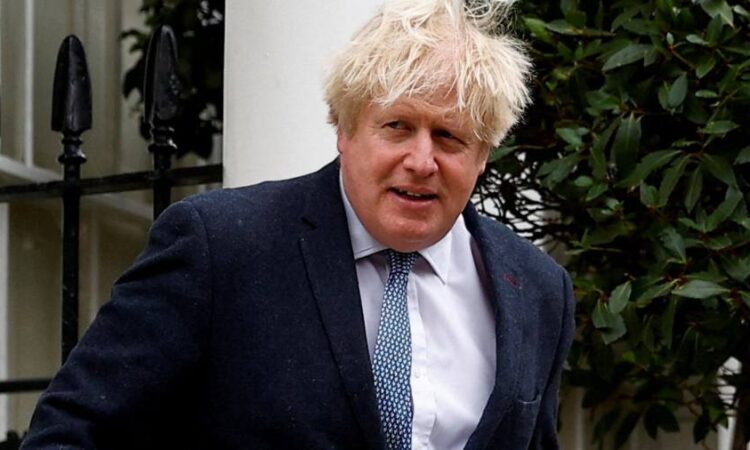
Allies of Boris Johnson have challenged the UK government after it reportedly told the Covid-19 inquiry it could not hand over the former prime minister’s WhatsApp messages and notebooks because it did not have them.
The public inquiry said on Tuesday that it had granted a 48-hour extension from 4pm on Tuesday to its deadline for the government to respond to its demand for Johnson’s unredacted messages and notes dating from the height of the coronavirus pandemic.
The inquiry, chaired by Baroness Heather Hallett, said it had rejected the Cabinet Office’s request to have until June 5, adding that the department had told it the government did not have Johnson’s WhatsApp messages or notebooks.
In a separate statement, Hallett set out new details on the inquiry’s timeframe, saying that she aimed to conclude all public hearings by summer 2026.
The announcements followed a stand-off between ministers and the inquiry over whether the requested documentation should be supplied unredacted, amid concerns in Whitehall about the precedent such a move could set.
Downing Street on Tuesday repeated its assertion that material that was “unambiguously irrelevant” to the probe should not be handed over.
Later on Tuesday, the Cabinet Office said it was “fully committed” to its obligations to the inquiry but confirmed its objection to sharing any government employees’ WhatsApp messages “which are not about work but instead are entirely personal and relate to their private lives”.
The government statement raises the prospect of a legal battle when the Thursday deadline arrives.
A spokesperson for Johnson said he had “no objection to disclosing material to the inquiry”, adding: “He has done so and will continue to do so. The decision to challenge the inquiry’s position on redactions is for the Cabinet Office.”
One ally of Johnson contested the Cabinet Office’s assertion that it did not have his messages and notebooks, saying that Johnson’s team had at all times “co-operated fully with the Cabinet Office-appointed legal team who have had access to all that material”.
The person said that, to date, Johnson’s office was “not aware of having received any instructions or requests from the Cabinet Office regarding this material”.
On Tuesday night an official admitted that government lawyers had had access to the documents. The official told the FT that the Cabinet Office had lost access to the material when Johnson changed legal representation last week. “The government’s only just lost the ability to see it,” the official said, but insisted it remained correct to say “the Cabinet Office did not ever possess these documents”.
The official told the FT that the Cabinet Office had lost access to the material when Johnson changed legal representation last week. “The government’s only just lost the ability to see it,” the official said, but insisted it remained correct to say “the Cabinet Office did not ever possess these documents”.
Johnson’s ally also accused the government of insisting on redactions of his documents in order to protect Prime Minister Rishi Sunak. “The WhatsApps the government really doesn’t want disclosed are Sunak’s. Boris is just a distraction in this. The government is taking this position because it doesn’t want current ministers included.”
Labour questioned how the former prime minister’s evidence had seemingly “gone missing” and warned of a “whiff of a cover-up”, a suggestion rejected by Number 10.
Lord Bob Kerslake, former head of the civil service, told the BBC there appeared to be a “cover-up going on here to save embarrassment of ministers”, but added that the Cabinet Office was also “fighting for a principle of confidentiality”.
In its notice on Tuesday, the inquiry told the government it had to provide a record of any “action taken by the Cabinet Office to obtain the potentially relevant material”.
Downing Street suggested the route was open for Johnson to hand over his own unredacted documents to the inquiry if he wished.
Number 10 said the rules around ministers’ WhatsApp messages were clear and that “substantive decisions” should be recorded as a matter of course, while other messages could be deleted.
Separately, Hallett announced three new investigations — into vaccines and treatments, government procurement and the care sector — to add to the three already confirmed, which cover pandemic preparedness, political decision-making and the pandemic’s impact on healthcare.
The first hearings, on pandemic preparedness, will run for six weeks from June 13.






